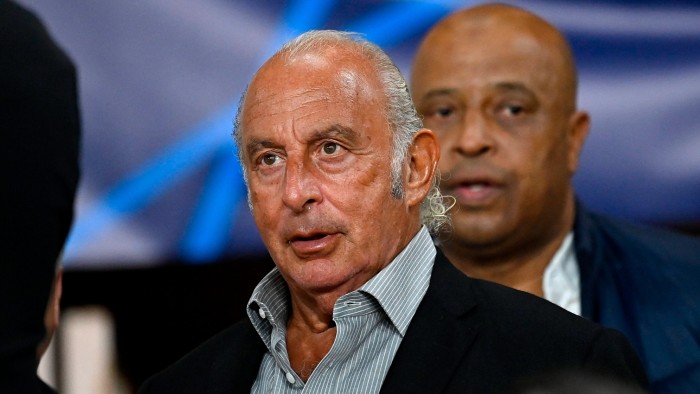Unlock the Editor’s Digest for free
Roula Khalaf, Editor of the FT, selects her favourite stories in this weekly newsletter.
Sir Philip Green has failed in his attempt to challenge the use of British parliamentary privilege in the House of Lords to link the former Topshop owner to allegations of sexual misconduct in 2018.
Green, who lives in Monaco, had lodged a privacy complaint with the European Court of Human Rights that could have undermined the ability of British MPs and peers to use their parliamentary privilege to reveal confidential details that are subject to an injunction.
In 2018, House of Lords peer Lord Peter Hain had used parliamentary privilege to name Green as the businessman accused of attempting to use non-disclosure agreements to silence staff who had accused him of sexual harassment and bullying. Green has denied the allegations.
In a ruling on Tuesday morning, the European court unanimously found that the UK had not violated the European Convention on Human Rights, avoiding a controversial intervention into the rights of Britain’s parliament by judges in Strasbourg.
The court found that it should be left to the individual states, and the UK’s parliament in particular, to decide on the controls required to prevent parliamentary members from revealing information subject to privacy injunctions.
It added that “to find otherwise would run contrary to the principle of the autonomy of parliament, which had already considered and rejected the need for further controls”.
Parliamentary privilege grants MPs and peers legal immunity over freedom of speech, and also the ability of the media to report what they say without fear of being successfully sued.
Green, Topshop and its parent company, Arcadia Group, had settled actual and potential employment proceedings with former employees, according to the court documents, with all sides undertaking to keep information related to the complaints and the settlement confidential.
In July 2018, they applied to the High Court for an injunction preventing publication of their identities and the facts of the allegations. But following the publication of the story about a “prominent businessman” — without naming Green — Hain took the floor to say that it was his “duty under parliamentary privilege to name Philip Green as the individual in question”.
The disclosure sparked a slew of claims by other former employees and widespread media coverage about Green’s alleged activities. The former retail tycoon pursued an expensive privacy claim against The Telegraph newspaper only to drop it the week before it was due to go to trial.
Green is one of Britain’s best known businessmen. He was often referred to as the “king of the high street”, rubbing shoulders with model Kate Moss at the height of Topshop’s popularity, and was subsequently knighted.
As well as Arcadia, which owned Topshop and other mid-market fashion chains, including Burton and Dorothy Perkins, Green also owned department store chain BHS. In 2005, Arcadia paid a £1.2bn, tax-free dividend to Green’s wife, the registered owner of the business.
However, Green’s fall from grace has been widely documented since he sold the now defunct BHS chain in 2015 for £1 to Dominic Chappell, a serial bankrupt with no retail experience.
His Arcadia empire went bust during the early days of the Covid-19 pandemic, having failed to adapt to the shift to online shopping, making it one of the most high-profile retail collapses in recent years.
Green did not immediately respond to a request for comment.




